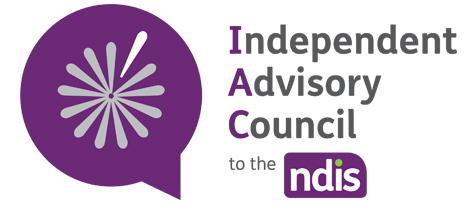Improving equity in the NDIS
This report gives advice to the NDIA Board. The Equity and Inclusion Reference group of the Independent Advisory Council (IAC) wrote this report. When we say we, we mean the IAC.
This advice focuses on how to improve equity of access, participation, and outcomes in the NDIS. It will help to get good outcomes for people who identify as First Nations, culturally and linguistically diverse (CALD) and as lesbian, gay, bisexual, transgender, intersex, queer/questioning, asexual (LGBTIQA+).
We use the word intersectional to show that people can be different in more than one way and need to be treated differently.
Our recommendations
We recommend a new approach to co-design with representatives of the target groups. This new approach should have the vision of:
The NDIS is inclusive, safe, and responsive, and assists all Australians with disability to meet their disability support needs in ways that achieve equitable outcomes.
We recommend that an intersectional framework will assist the NDIA to better understand and respond to complexity. This would assist the NDIA to work towards creating and sustaining a NDIS that is inclusive, safe, and responsive for all.
The framework will uphold insurance principles and support a sustainable scheme. It will support obligations under human rights conventions.
What we found in our research
NDIA has committed to work in partnership with participants and the disability community. The ‘Our engagement framework’ is a guide to support and strengthen engagement with the disability community.
The Co-Design Advisory Group has prioritised culturally competent engagement with CALD and First Nation communities for 2022.
The NDIA have a CALD and LGBTIQA+ strategy which contains the commitment to every participant to be treated with dignity, accepted without judgement and having autonomy over their own body.
Available data suggests that people with disability are more likely than the general Australian population to face barriers accessing health services.
NDIS services and providers usually do not centre around the participants needs. Supports are not culturally safe and there is distrust of government and differing views of self and disability.
Many disability support organisations do not have policies regarding sexuality and relationships or policies for same sex expression. There is a lack of culturally appropriate policy and implementation by disability organisations.
A NDIS built on an acknowledgement of differing views of disability would include systems navigators who are trusted by people of the marginalised community. They would be able to translate community perceptions of disability to the NDIA and support providers to deliver culturally competent services.
Indicators of good practice could include number of participants with ABS data, plan size, plan utilisation and use of non-agency managed options. Open employment options, choice and control over life domains, making majority of decision and accessing health care.
The NDIA has no control over the work of the NDIS Quality and Safeguards Commission, but good practice in the NDIS Quality and Safeguards Commission would include requirements for cultural competence included in standards.
